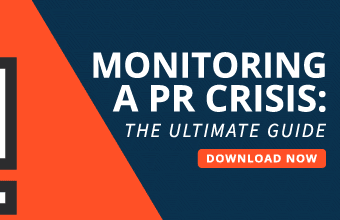Businesses are run by humans (for the most part), and humans make mistakes. In most cases, the mistakes are small and simple to fix, but occasionally they have the potential to cause real and lasting damage. In extreme cases a client could refuse to pay for work already carried out or even demand a refund if they feel the service provided was not as expected.
This is why it’s often recommended that businesses take out professional indemnity insurance as a safety net to cover unpaid fees or legal costs. Comparing insurance company quotes will help you to work out if this type of insurance could protect you financially. These incidents, if not handled in the right way, could also damage your business’s reputation and have a direct impact on the future success of your business.
If you find your business in the spotlight for all the wrong reasons, these steps should help you navigate your way out of a crisis.
What to do
There will be key people in your business who will act as your response team in a crisis. This may be a dedicated PR manager or your marketing team, but they should have a standard policy in place for managing a PR incident. Depending on the severity of the incident you may also want to bring in external PR specialists who have experience in these situations. All of these people need to get together as a team to create your response strategy.
This strategy will include making sure everyone knows their responsibilities. For example, you need to decide who will be addressing the media, who will be communicating with clients and customers and/or staff. Your response to the situation needs to be agreed so that everyone in the business is consistent in the language and message they use to discuss what has happened.
This may be an admittance of wrongdoing and an apology or simply what you intend to do to resolve the situation, but statements should be minimal and only given by approved staff. However, if there is a possibility that legal action may be taken, apologies may be perceived as an admission of guilt. In these cases, the apology won’t stop the negative press coverage and could compromise a defence in court.
What not to do
One of the most important things to remember is not to lash out in response to a crisis. Even if a third party is saying untrue things about your business, you need to take your time, work out your strategy, and respond calmly and professionally. Depending on the unique situation, it may not be wise to handle the press with a ‘no comment’ response. It invites speculation and may even imply that you are guilty if you’re perceived to be hiding from the issue.
If you don’t have enough information to respond at that time, it may be advisable to say as much and that a full statement will follow shortly. However, it’s essential to respond as soon as you can and to make sure you confirm all your facts and that your message is consistent throughout the business.
While all of this should help you to preserve your reputation, the best way to protect your business financially is to make sure you have professional indemnity insurance in place. To find out more about this and other types of business insurance, visit hippo.co.za where you can compare insurance company quotes.
Finally, when you’ve done all you can, it’s important to move on. Learn from your mistakes as a business, retrain staff where appropriate, reaffirm or rewrite company policies, and look to the future. Negative PR is usually temporary and it is absolutely possible to rebuild a positive brand image and regain customer trust.
Managing a PR crisis can be tricky business. However, by discussing options with your manager and marketing team, you can prevent further setbacks. Similarly, be sure to not lash out and make rash decisions on impulse, as this could only lead to further problems over time. Keep calm and rational in your responses, and work with others to find the best solution. Legal issues such as insurance should also be considered. By taking on board the advice above, you will be able to prepare for anything, and can prevent a major PR crisis causing too much damage.








